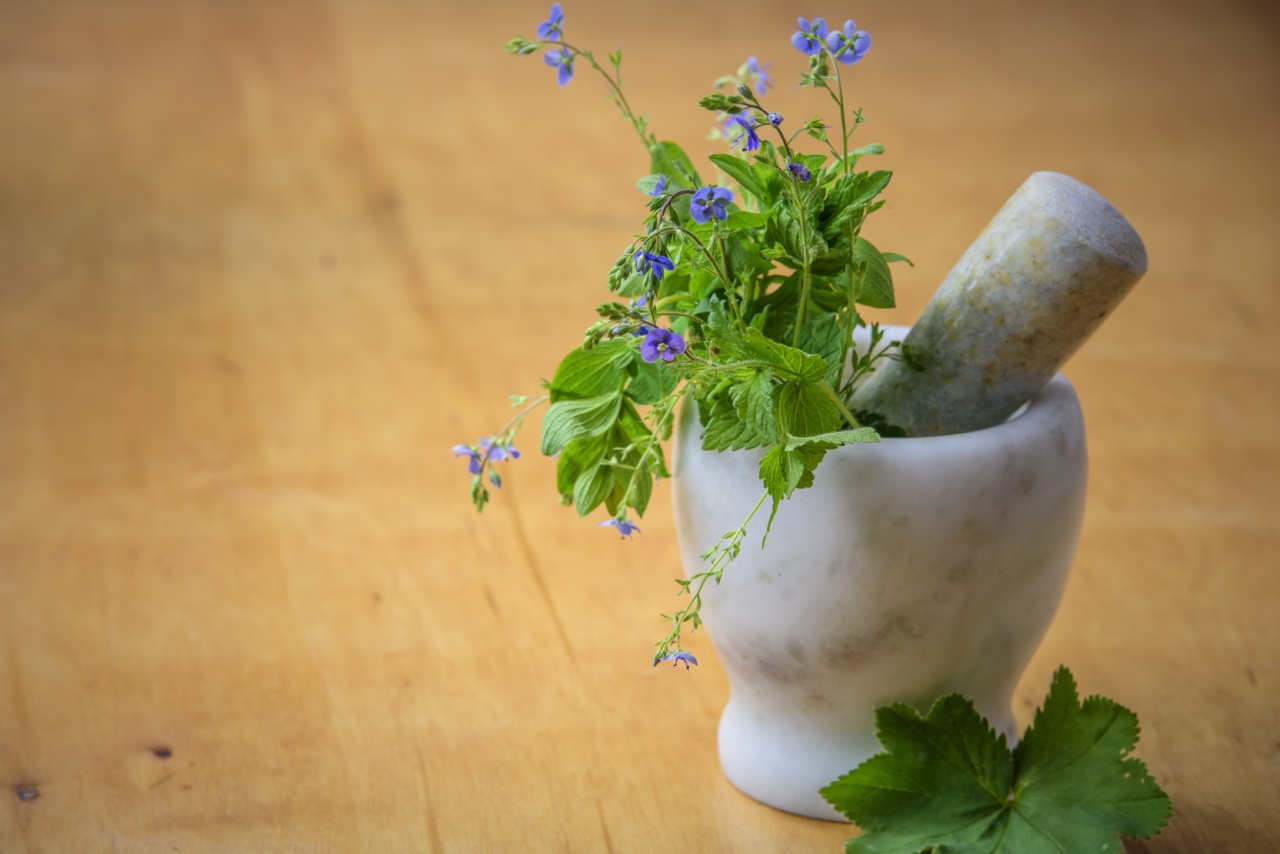Cancer is one of the leading causes of mortality worldwide, with its incidence rising steadily in recent decades. This has led to an increased interest in finding alternative treatments and preventive measures against cancer.
In recent years, there has been growing evidence to suggest that various spices, commonly found in our kitchens, may possess potent anti-cancer properties. Incorporating these spices into our diets may not only enhance the flavors of our dishes but also provide us with a natural and effective way to combat cancer.
1. Turmeric
Turmeric, a vibrant yellow spice commonly used in Indian cuisine, contains a compound called curcumin. Curcumin has been extensively studied for its anti-cancer properties.
It possesses powerful antioxidant and anti-inflammatory effects, which help protect cells from damage and prevent the formation of cancerous cells.
Studies have shown that curcumin can inhibit the growth and spread of various types of cancer cells, including breast, colon, lung, and prostate cancer.
Its ability to induce programmed cell death, or apoptosis, in cancer cells makes it a promising potential treatment for cancer.
2. Ginger
Ginger, known for its distinct flavor and aroma, has long been used as a natural remedy for various ailments. It also exhibits anti-cancer properties, making it a valuable spice in cancer prevention and treatment.
Research suggests that ginger can inhibit the growth of cancer cells and induce apoptosis. It has been particularly studied for its potential in treating ovarian, colorectal, and pancreatic cancer.
Gingerol, the main bioactive compound in ginger, is believed to be responsible for its anti-cancer effects.
3. Garlic
Garlic has been hailed for its numerous health benefits, including its potential anti-cancer properties. It contains organosulfur compounds, such as allicin, which have been shown to possess anti-cancer properties.
Several studies have demonstrated that garlic can inhibit the growth of cancer cells and prevent the formation of tumors. It has been particularly studied for its potential in preventing stomach, colorectal, and breast cancer.
Garlic also exhibits anti-inflammatory effects, which may contribute to its anti-cancer properties.
4. Cinnamon
Cinnamon is a popular spice that adds warmth and aroma to various dishes. It contains a compound called cinnamaldehyde, which gives it its distinct flavor and contributes to its potential anti-cancer properties.
Research suggests that cinnamon extract can inhibit the growth of cancer cells and induce cell death. It has been studied for its potential in preventing and treating various types of cancer, including colorectal, leukemia, and melanoma.
Cinnamaldehyde exhibits antioxidant and anti-inflammatory effects, which may contribute to its anti-cancer properties.
5. Black Pepper
Black pepper is a widely used spice known for its pungent flavor. It contains a compound called piperine, which has been shown to have anti-cancer effects.
Studies have indicated that piperine can inhibit the growth of cancer cells and induce apoptosis. It has been studied for its potential in treating various types of cancer, including breast, colon, and lung cancer.
Piperine also possesses antioxidant and anti-inflammatory properties, which contribute to its potential anti-cancer effects.
6. Rosemary
Rosemary is an aromatic herb commonly used in Mediterranean cuisine. It contains several bioactive compounds, including rosmarinic acid, carnosic acid, and caffeic acid, which have been studied for their potential anti-cancer properties.
Research suggests that rosemary extract can inhibit the growth of cancer cells and induce apoptosis. It has been studied for its potential in preventing and treating various types of cancer, including colon, breast, and prostate cancer.
Rosemary also exhibits antioxidant and anti-inflammatory effects, which may contribute to its anti-cancer properties.
7. Thyme
Thyme is a popular herb with a distinct aroma and flavor. It contains various bioactive compounds, including thymol and carvacrol, which have been studied for their potential anti-cancer properties.
Studies have shown that thyme extract can inhibit the growth of cancer cells and induce apoptosis. Its antioxidant and anti-inflammatory properties may contribute to its potential anti-cancer effects.
Thyme has been studied for its potential in preventing and treating lung, breast, and colon cancer.
8. Oregano
Oregano is a versatile herb commonly used in Mediterranean and Mexican cuisines. It contains several bioactive compounds, including carvacrol, which contribute to its potential anti-cancer properties.
Research suggests that oregano extract can inhibit the growth of cancer cells and induce apoptosis. It has been studied for its potential in preventing and treating various types of cancer, including colon, breast, and prostate cancer.
Oregano also exhibits antioxidant and anti-inflammatory effects, which may play a role in its anti-cancer properties.
9. Sage
Sage is an herb known for its aromatic leaves and medicinal properties. It contains various bioactive compounds, including rosmarinic acid, which contribute to its potential anti-cancer effects.
Studies have shown that sage extract can inhibit the growth of cancer cells and induce apoptosis. It has been studied for its potential in preventing and treating several types of cancer, including colon, liver, and breast cancer.
Sage also possesses antioxidant and anti-inflammatory properties, which may enhance its anti-cancer properties.
10. Cloves
Cloves are highly aromatic flower buds commonly used in both sweet and savory dishes. They contain several bioactive compounds, including eugenol, which have been studied for their potential anti-cancer properties.
Research suggests that cloves can inhibit the growth of cancer cells and induce apoptosis. They have been studied for their potential in preventing and treating various types of cancer, including lung, liver, and cervical cancer.
Eugenol exhibits antioxidant and anti-inflammatory effects, which contribute to its potential anti-cancer properties.
Conclusion
Incorporating spices into our diets not only enhances the flavors of our dishes but also provides us with a natural and effective way to combat cancer.
The various bioactive compounds found in spices, such as curcumin in turmeric, gingerol in ginger, and allicin in garlic, possess potent anti-cancer properties. These spices have been studied extensively for their potential in preventing and treating various types of cancer.
While spices alone cannot replace conventional cancer treatments, they can complement existing therapies and help mitigate the risk of cancer development.
Their antioxidant and anti-inflammatory effects, along with their ability to inhibit the growth of cancer cells and induce apoptosis, make them valuable allies in our fight against cancer.



























